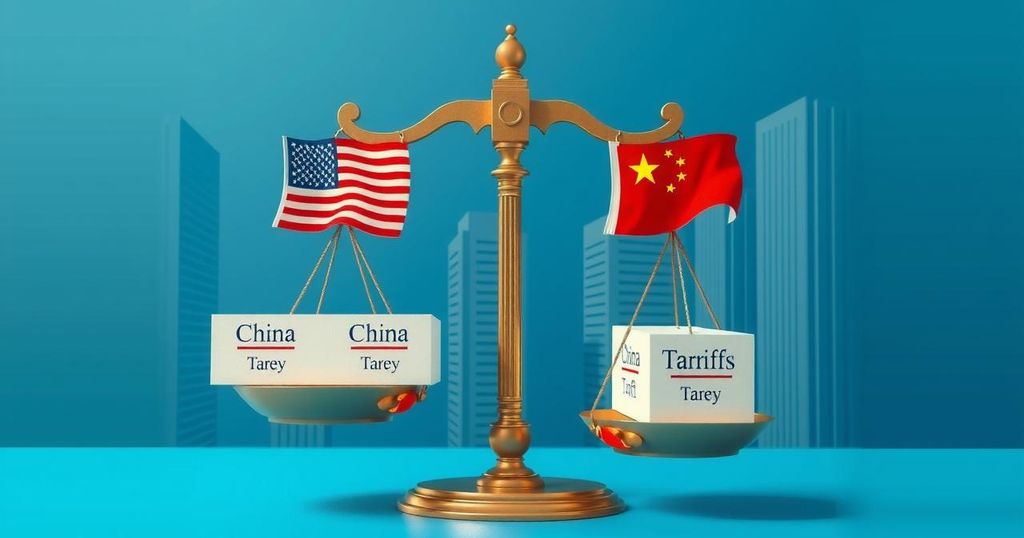Trump Considers Reducing China Tariffs Ahead of Crucial Trade Talks

U.S. President Donald Trump proposed reducing tariffs on Chinese imports from 145% to 80% ahead of major trade talks in Switzerland. This shift comes amid economic pressures from ongoing trade conflicts, as Trump pushes for China to open its markets. Key officials, including Treasury Secretary Scott Bessent, will be involved in the discussions, marking a significant moment following months of escalating trade tensions between the two nations.
In a recent communication on Truth Social, U.S. President Donald Trump indicated a potential reduction of tariffs on Chinese imports from an existing 145 percent down to 80 percent. His remarks come just ahead of important trade discussions between U.S. and Chinese officials set to take place in Switzerland. Trump emphasized the need for China to open its markets, declaring, “closed markets don’t work anymore.” This meeting represents a crucial moment as it is the first significant dialogue since the start of Trump’s controversial tariffs.
The trade meeting involves top U.S. officials, including Treasury Secretary Scott Bessent and U.S. Trade Representative Jamieson Greer, who will engage with their Chinese counterparts in Geneva. Recent months have seen escalating tensions due to the tariffs imposed during Trump’s administration, which led to China retaliating with its own set of import levies. The trade war has had a significant impact, particularly on China, labeled as the world’s largest exporter.
As tariffs rose dramatically, reaching 145 percent on countless products, the economic implications for both nations became increasingly dire. With consumer goods facing price hikes and supply chain issues, concerns are mounting on both sides. Trump, having previously held a firm stance against lowering tariffs without substantial negotiations, appeared to soften his approach recently during a press event. He suggested that if the weekend talks yield favorable outcomes, a tariff reduction could be feasible. “We’re going to see,” he noted.
Despite the possibility of reducing tariff rates, the administration is caught in a complex balancing act. Trump desires significant tariff revenues to fund his income tax cuts while simultaneously seeking to enhance access for U.S. products overseas. The high tariffs not only affect relations with China but also complicate efforts to establish strong trade alliances with other nations. Meanwhile, President Trump’s economic advisor, Kevin Hassett, has voiced optimism regarding the impending talks in Switzerland, remarking, “Everything that’s been going on with the meeting in Switzerland is very promising to us.”
As the U.S.-China trade discussions approach, it remains uncertain how President Trump’s conflicting goals will play out. His administration’s acknowledgment that the current 145 percent tariff is unsustainable suggests that a reevaluation of trade strategy is essential. The outcome of these discussions may mark a pivotal point in U.S.-China trade relations, potentially influencing future trade policies significantly.
In summary, President Trump’s suggestion to reduce tariffs on Chinese imports ahead of U.S.-China talks in Switzerland indicates a potential shift in trade strategy. While he emphasizes the need for China to open its markets and the urgency of the situation, underlying tensions and conflicting objectives complicate the negotiations. The outcome of these discussions remains to be seen, with implications for economic strategy and international trade relations.
Original Source: www.abc.net.au






